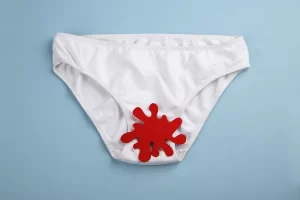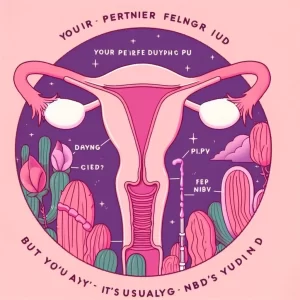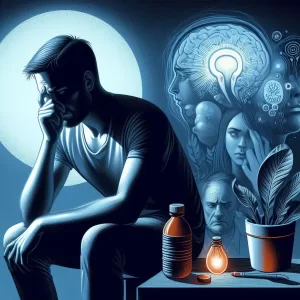Quels sont les signes de la dépression post-partum ?
Désolé, aucun message n'a été trouvé.
**What are the Signs of Postpartum Depression?**
**Introduction**
Postpartum depression (PPD) is a common mental health condition that affects many new mothers after childbirth. It’s important to be aware of the signs and symptoms of PPD so that you can get help if you think you may be experiencing it. This article will explore the various signs of PPD.
**Emotional Changes**
* **Sadness and tearfulness:** Persistent and overwhelming feelings of sadness, even during moments of joy.
* **Anxiety and irritability:** Heightened levels of anxiety, worry, and irritability.
* **Mood swings:** Extreme emotional fluctuations, switching rapidly between euphoria and despair.
* **Guilt and shame:** Feeling guilty or ashamed about your thoughts and feelings, even though you know they’re not your fault.
* **Difficulty bonding with your baby:** Feeling detached or distant from your newborn child, despite your best efforts to bond with them.
**Cognitive Changes**
* **Impaired concentration and memory:** Difficulty focusing, remembering things, or making decisions.
* **Negative thoughts and self-criticism:** Persistent negative thoughts about yourself, your abilities as a mother, and your relationship with your partner.
* **Hopelessness and worthlessness:** Believing that there’s no way to improve your situation and that you’re a burden to others.
* **Suicidal or homicidal thoughts:** Rare but serious symptoms that require immediate professional help.
**Physical Changes**
* **Fatigue and insomnia:** Overwhelming exhaustion and difficulty sleeping or staying asleep.
* **Changes in appetite and weight:** Significant increases or decreases in appetite, leading to weight gain or loss.
* **Headaches and body aches:** Persistent headaches, muscle tension, or body aches that do not go away.
* **Heart palpitations:** Faster than normal heart rate, often accompanied by anxiety or panic symptoms.
**Other Signs**
* **Avoiding social situations:** Isolating yourself from friends and family, even when they offer support.
* **Changes in sex drive:** Loss of interest in sex or difficulty having an orgasm.
* **Substance abuse:** Using alcohol, drugs, or other substances to cope with symptoms.
* **Self-harm:** Engaging in behaviors that cause physical harm to yourself, such as cutting or bruising.
**When to Seek Help**
If you experience any of these signs of PPD, it’s important to seek help from a medical professional as soon as possible. Early intervention is crucial for managing PPD and preventing long-term complications. Call your healthcare provider, seek support from a trusted friend or family member, or contact a mental health hotline for assistance.
**Conclusion**
Postpartum depression can be a challenging time for both mothers and their families. By being aware of the signs and symptoms, you can take steps to get the help you need to manage your PPD and enjoy the special bond with your baby. Remember that you are not alone, and professional support is available to help you recover and thrive.
Un commentaire
Laisser un commentaire
Articles populaires








**What are the Signs of Postpartum Depression?**